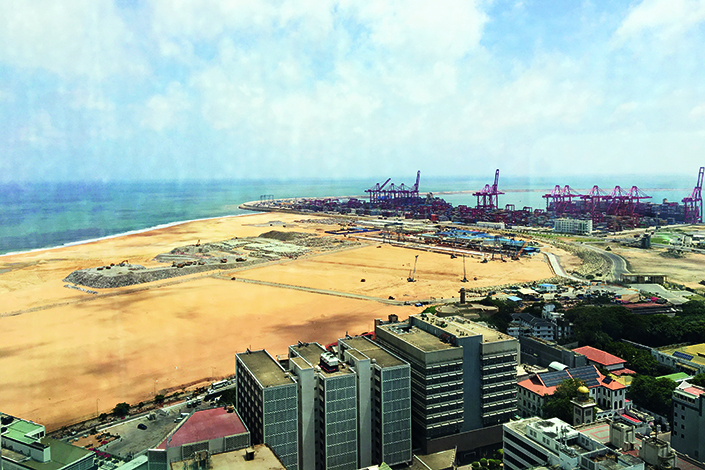Chinese-state owned China Communications Construction Company has secured two lucrative port deals at the deep-water East Container Terminal (ECT) of Port of Colombo as China made further inroads deep into Sri Lanka’s maritime sector.
On Tuesday, Sri Lanka’s cabinet approved a contract award to the Joint Venture venture set up by China Harbour Engineering Company (CHEC), a subsidiary of China Communications Construction Company and Sri Lanka’s Access Engineering for the construction of the second phase of Colombo Port’s East Container Terminal (ECT).
The Cabinet Office stated the government reached this decision after evaluating three bid proposals for the international tender.
Meanwhile, Shanghai Zhenhua Heavy Industries Co., Ltd, another subsidiary of Chinese State-owned China Communications Construction Company secured the deal to supply 14 ship-to-shore cranes and 40 rail-mounted gantry cranes for phase one of the deepwater terminal, which is yet to go into full operations.
China Communications Construction Company is undertaking the project Colombo Port CIty project which is located next to the Port of Colombo and it has also secured several key road construction projects including high-way projects.
Under the Sri Lankan government’s original plans, ECT was to be developed jointly with India and Japan under the terms of a 2019 tripartite agreement. However, Colombo canceled the agreement earlier this year, alleging that the Indian firm involved in the project refused to agree on terms of service.
Under the tripartite agreement, investors from Japan and India would have had a 49 percent stake in ECT while the state-owned Sri Lanka Ports Authority would have retained 51 percent. The Colombo port trade unions were opposed to this arrangement, claiming it would amount to a sell-out of the ECT.
Meanwhile, in the new deal with CHEC, the strategic port terminal will be “totally operated” by the Sri Lanka Port Authority, according to a statement by the Department of Government Information. The Government earlier excluded Chinese firms from competing in Build-Operate-Transfer (BOT) Contracts for ECT given Chinese ownership stakes in CICT which accounts for the largest container handling at Port of Colombo and Hambantota Port.
One of the deliverables for CHEC will be to construct an additional 700-meter long quay wall and infrastructure around it, estimated to cost at least $700 million.
The ECT contract marks another milestone in China’s continued influence over infrastructure development in the island nation of Sri Lanka. Another Chinese State-Owned company, China Merchants Port Holdings already hold majority stakes at the southern port of Hambantota, as well as Colombo’s International Container Terminal at Colombo Port(CICT). China Merchants plans to position Hambantota Port as a multi-purpose Port with its plans to commence Container operations in coming years, which could trigger a competition with Port of Colombo.
Some view Chinese influence as part of the reason why Japan and India were edged out in negotiations over ECT. The two countries had expressed displeasure in the manner in which ECT’s tendering process was being conducted

